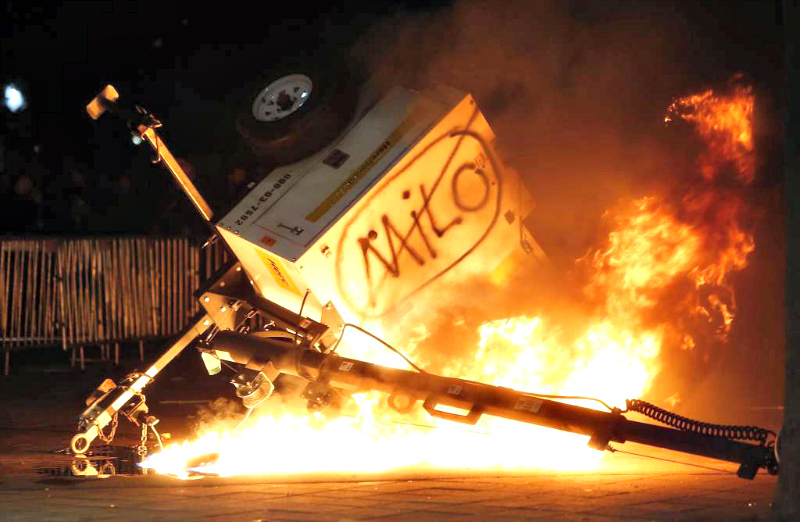Kerby Anderson
The free speech movement on the University of California campus began more than 50 years ago. I remember it because, as a youngster, I attended a church in Berkeley very near where it was taking place. So I thought it was indeed ironic that a raging mob forced the university to shut down a scheduled speaking event.
It is not unusual these days to cancel a speaker, especially if he or she is a conservative. Years ago, Ambassador Jeanne Kirkpatrick was heckled at one speech and had to cancel another one. Condoleezza Rice was canceled at Rutgers. Dr. Ben Carson was forced to withdraw as a speaker at the graduation ceremonies for Johns Hopkins. The list goes on and on.
What made the Berkeley incident significant were the riots and the reaction. We aren’t used to seeing riots on campus over a speaker. There is a good reason for that. Most speakers would back down rather than risk the possibility that a “peaceful protest” might quickly become violent.
David French in a recent column also explains that the Berkeley riot has something in common with other riots. Black-clad thugs (know as the “black bloc”) were attacking people and destroying property. After they attack, they melt back into a crowd that quickly closes behind them.
Former Labor Secretary Robert Reich, who is also a professor at the university, blamed the Berkeley riot on outside agitators who were right wing. I guess, he was half correct. Many of the agitators probably weren’t students, but they certainly were not right wing agitators.
Also of concern were the rather meek reactions from the mayor of Berkeley and California’s Lieutenant Governor. The title of David French’s column is: “If We Can’t Unite Against Rioting, We Can’t Unite at All.”
I would hope that all of us would agree that rioting to stop free speech is wrong. Nothing justifies the violence that took place. Apparently, that is asking too much from some elected officials.
 Listen Online
Listen Online Watch Online
Watch Online Find a Station in Your Area
Find a Station in Your Area










 Listen Now
Listen Now Watch Online
Watch Online
